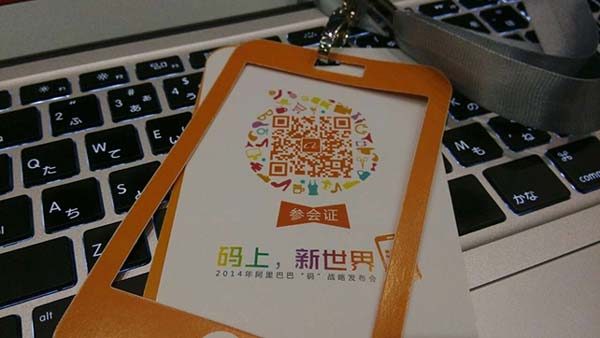
Alibaba announced a new 2D code strategy called ‘Ma Shang Tao’ last week. It will become a significant part of company’s “cloud+ terminal” strategy.
Alibaba chief operating officer Zhang Yong said, “Any code would become a terminal and it is no longer just a simple business card but more services and content.”. This 2D code strategy will achieve seamless connections between any people, people and information, and people and objects. The first 5 apps released are ‘product code’, ‘service code’, ‘interaction code’, ‘media code’ and ‘shop on the code’.
Product code. Every product has its own product code, like a unique ID card. The product code can access Alibaba’s billion commodities library. Using this product code, customers can know accurate details about this product quickly and can also complete purchase online.
Service code. Service code is for delivery packages. Scan the service code when signing off for receipt of packages, then they can enjoy the personalized services provided by sellers, including service manual and post-sale services. Meanwhile, through the service code, more sellers can reduce the cost of maintaining the relationship with customers and open up the online to offline (O2O) transactions.
Interaction code. Interaction code provides a channel between merchants and users. Users can participate in cloud games and events by scanning the interaction code. So far Alibaba has collaborated with Pepsi and Tsingtao Beer. Consumers will see the interaction code on each product this summer.
Media code. The media code is to help traditional media’s transformation. Once customers see the promotion on the media, they can scan the media code and purchase online immediately.
Shop on the code. This type of 2D codes will change the current operation status of offline shops. In the future, as long as there is a code, there is a shop behind it. Besides that, the shop on the code will soon become a necessary element for physical stores and shopping malls. Customers can acquire promotion and discount information through this code.
Alibaba’s 2D strategy for e-commerce is not about payment but connection, a connection between online and offline as e-commerce transaction is not objective yet. Alibaba wants to develop users’ habits of scanning code via 5 new apps above.